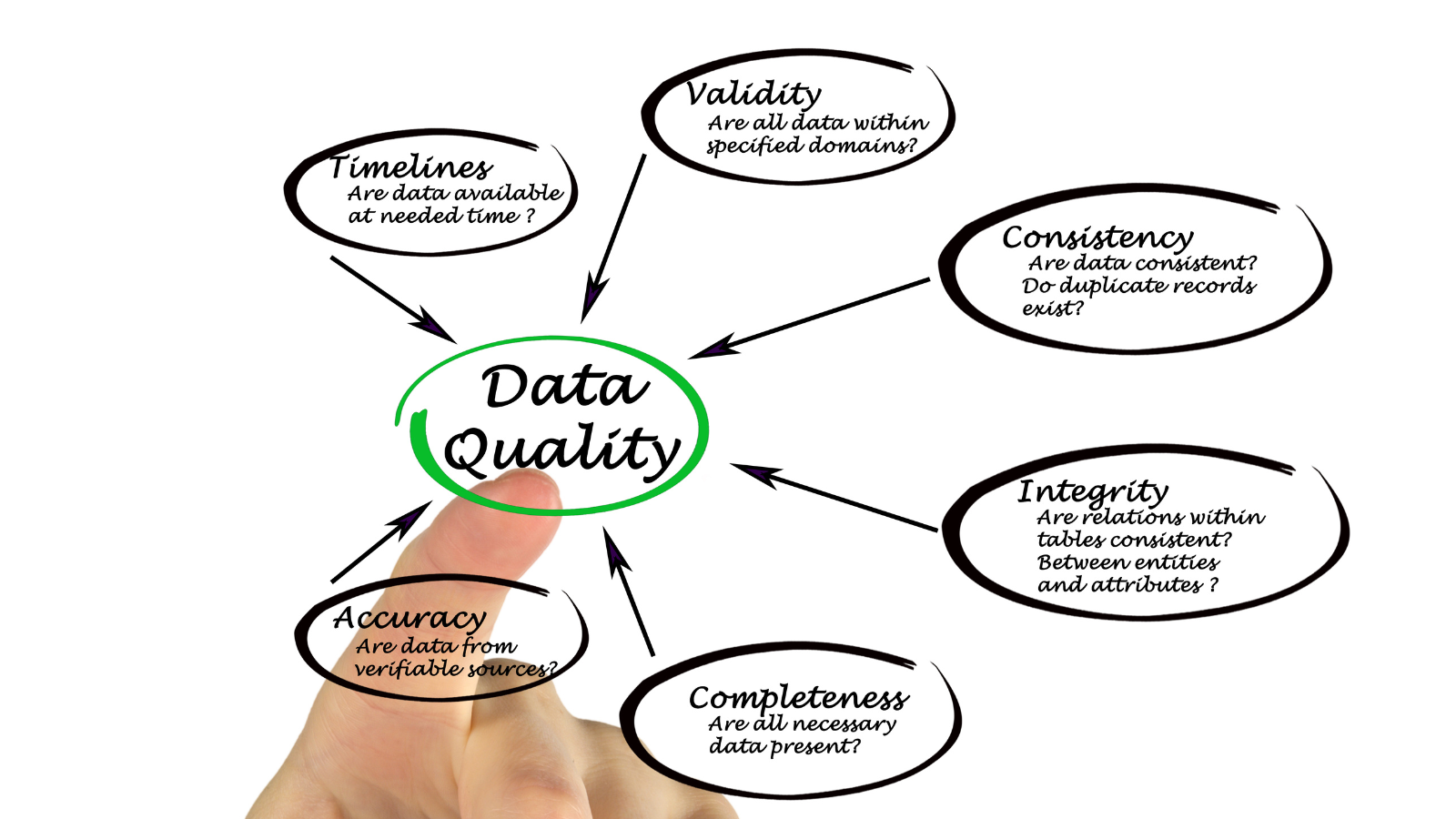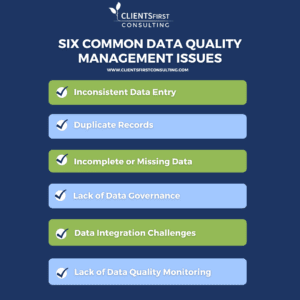Six Common Data Quality Management Issues and How to Solve Them

In today’s data-driven decision-making environment, many businesses rely heavily on the accuracy, completeness and reliability of their data and their data quality management practices.
Poor data quality management can quickly undermine these efforts, leading to costly errors, missed opportunities and compromised business performance.
In this blog post, Chris Fritsch explores common data quality management issues faced by organizations and provides actionable strategies to help you avoid them, ensuring your data remains a valuable asset for driving success.
- Inconsistent Data Entry: One of the most prevalent data quality management nightmares is inconsistent data entry. When multiple individuals enter data using different formats, standards, or abbreviations, it becomes challenging to maintain data consistency and accuracy. To mitigate this issue, establish clear data entry guidelines, provide training to employees, and implement data validation rules to enforce standardization. Regular data quality audits and ongoing data stewardship efforts will help maintain data integrity over time.
- Duplicate Records: Duplicate records can wreak havoc on your data quality management processes, leading to incorrect analysis, wasted resources and poor customer experiences. Implementing de-duplication processes and utilizing algorithms or tools to identify and merge duplicate records can significantly improve data accuracy. Regularly conducting data cleansing activities and establishing procedures to prevent duplicates during data entry can save you from the nightmare of duplicate data.
- Incomplete or Missing Data: Incomplete or missing data can hinder your ability to gain valuable insights and make informed decisions. It is crucial to establish data capture protocols that ensure all required fields are consistently populated. Automated data validation checks can help identify missing data during entry, while periodic data audits can address incomplete records. Additionally, incentivizing employees to maintain data completeness and conducting regular data hygiene practices will contribute to better data quality.
- Lack of Data Governance: Without proper data governance, organizations may face data quality nightmares due to inconsistent standards, lack of accountability and poor data quality management practices. Establishing a data governance framework that includes clear ownership, defined roles and responsibilities and standardized data policies is crucial. Regular data governance reviews, data quality assessments and ongoing training and communication about data governance practices will ensure a strong foundation for data quality management.
- Data Integration Challenges: When data is scattered across multiple systems or departments, data integration becomes a significant challenge. Disparate data sources, incompatible formats, and inadequate integration processes can lead to data inconsistencies and inaccuracies. Implementing a robust data integration strategy, utilizing appropriate integration tools and establishing data transformation rules can help streamline data integration processes. Regular data reconciliation and validation checks will ensure data integrity is maintained throughout the integration process.
- Lack of Data Quality Monitoring: Data quality is not a one-time task but an ongoing process. Without regular monitoring and measurement, it is difficult to identify and rectify data quality issues. Implement data quality monitoring mechanisms, such as automated alerts, reports and dashboards, to proactively identify anomalies or deviations from established quality standards. Conduct periodic data quality assessments and establish data quality metrics to measure and track progress over time.
 Effective data quality management is the key to avoiding data quality issues that can hinder your business success.
Effective data quality management is the key to avoiding data quality issues that can hinder your business success.
By implementing the strategies outlined in this article— addressing inconsistent data entry, managing duplicate records, ensuring data completeness, establishing data governance, tackling data integration challenges and implementing data quality monitoring — you can maintain high-quality data that drives accurate analysis, informed decision-making, and operational excellence.
Keep in mind, prioritizing data quality is an investment that pays off in improved efficiency, better client experiences and a competitive edge in today’s data-centric business landscape.
For more than 15 years, the team at CLIENTSFirst Consulting has been helping professional services firms and other organizations improve data quality and successfully select and implement CRM and email marketing systems to maximize value, adoption and return on investment. We also offer outsourcing services. If you need help with CRM Success, contact us at 404-249-9914 or Info@ClientsFirstConsulting.com.






